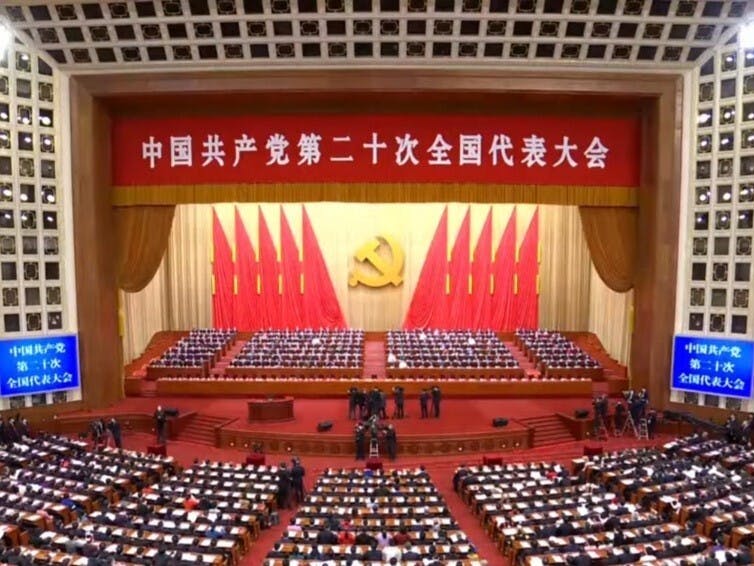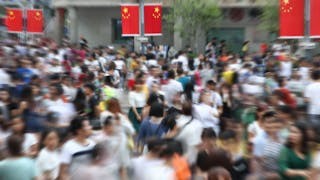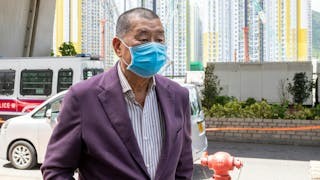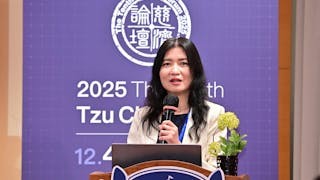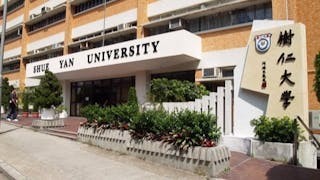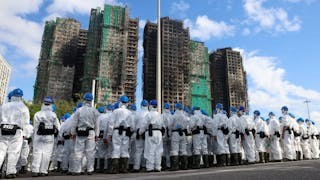在10月16日上午中共二十大開幕前,黨召開了兩次重要會議,包括10月7日召開的十九屆中央紀律檢查委員會第七次全體會議和10月9日至12日中共第十九屆中央委員會第七次全體會議。這兩次會議具有重要的政治意義,為中共二十大的召開奠定了基礎。
中紀委公報
中共十九大七中全會共有129名委員參加,4人缺席,包括突然發病去世的天津市市長廖國勛、以及正在接受調查的國家糧食和物資儲備局局長張務鋒等。
中紀委會後發表了一份256字的公報,稱其「推動新時代紀檢監察工作高質量發展」、中紀委成員「深入學習貫徹習近平新時代中國特色社會主義思想」,堅決落實「黨中央關於黨的自我革命戰略部署」,堅決維護黨中央權威和集中統一領導,「堅定不移全面從嚴治黨」。圍繞國家工作大局。中紀委將發揮監督保障執行、促進完善發展作用,「推動紀檢監察工作高質量發展,有力有效服務保障現代化建設大局」。
報告提到,各級紀檢監察機關共查處扶貧領域作風問題18.09萬宗,其中9.53萬人被黨紀政務處分;查處扶貧領域腐敗問題9.96萬宗,其中給予黨紀政務處分9.27萬人。而十九大以來,截至今年4月底,全國共查處民生領域腐敗和作風問題49.6萬個,處分45.6萬人。中紀委的工作不僅涉及政治監督,還通過巡視巡察,建立黨風建設數據庫。
習近平時期中共藉中紀委的努力工作,大力追查懲治腐敗黨員。如果反腐敗行動是習近平領導下中國的標誌,那麼這些行動具有重要意義。涉及腐敗、賄賂和濫用職權的官員被免職或受到處罰。習近平認為,中國共產黨必須堅決同腐敗分子作鬥爭;腐敗必須連根拔起、依法懲治和清除。習近平在他的著作和講話中,把包括思想、文化和藝術的上層建築反腐敗作為重中之重,要推動全社會提高法律意識,提高全國人民的社會主義思想。正如他在2012年黨的十八大上所說,「反腐敗是一場輸不起也決不能輸的重大政治鬥爭」,包括中共中央政法委前書記周永康、重慶市前市委書記薄熙來、重慶市前市委書記孫政才、中共中央辦公廳前主任令計劃等貪污黨員曾被懲處。
如果說過去毛澤東發起的整風運動是為了識別、孤立和清算那些反對毛澤東路線的分子,那麼習近平和他的支持者已經充分利用了反腐敗行動來剷除那些會使中共失去合法性的腐敗分子。習近平在最近的講話中經常提到鬥爭的必要性,這意味着中國共產黨必須與自己的敵人進行長期鬥爭,特別是對那些抹黑共產黨、未能按照黨的要求堅持廉政價值觀最高境界的腐敗黨員。
修改黨章確立習近平思想
10月9日,中投會召開了另一次重要的中央會議,中共中央總書記習近平作工作報告,中央政治局常委、中央書記處書記王滬寧在會上闡述了中共二十大將修改《中國共產黨章程》,但官方傳媒沒有提及修改黨章的細節。
不過,可以預料的是,王滬寧可能會提出黨的理論創新的一些新進展。至此,從1987年到2017年黨的十九大,中共黨章共修改了10次。
早在2022年8月,中共總書記習近平就提到,黨的十八大以來,「黨和國家事業取得歷史性成就、發生歷史性變革。」 他還強調,中國共產黨「成功推進和拓展了中國式現代化」。
最近幾周,中共中央宣傳部攝制的播放了電視專題片《領航》在中央電視台播出,包括第一集《掌舵遠航》、第二集《科學指南》。《掌舵遠航》強調以習近平為核心的黨中央領導;而《科學指南》則聚焦習近平思想。因此,習近平作為核心領導人,其思想有望在黨的二十大中特別強調。
中共十九大七中全會於 10 月 9 日在北京開幕,並於 10 月 12 日閉幕。據《星島日報》報道,「兩個確立」很可能是寫入黨章修正案,包括:(一)「確立習近平同志黨中央的核心、全黨的核心地位」;(二)「確立習近平新時代中國特色社會主義思想的指導地位」 此外,黨章很可能加入「實現祖國完全統一」的新論述,顥示大陸將對台灣發表一些重要聲明。
黨代表大會自然會強調中國共產黨的成功和成就。7月下旬,習近平總書記在向參加黨的二十大的領導幹部發表講話時就已經提到,中國共產黨克服了很多困難,取得了很多成就,戰勝了很多挑戰,包括來自政治、經濟、意識形態及自然環境的挑戰。他補充說,「新時代10年的偉大變革,在黨史、新中國史、改革開放史、社會主義發展史、中華民族發展史上具有里程碑意義」。
10月15日,習近平總書記在召開黨的二十大預備會議。籌備會議預計將通過黨的二十大主席團名單,通過王滬寧為大會秘書長。會議並通過了大會秘書處機構設置和工作任務。二十大主席團是否會包括前國家主席、中共總書記江澤民和胡錦濤還有待觀察。
據《星島日報》報道,赴北京的二十大廣西代表紛紛表示,要深刻領會「兩個確立」的決定性意義,即習近平作為黨中央核心領導人和習近平思想的領導地位; 《解放日報》還表示,出席黨的二十大代表「將在思想上、政治上、行動上同以習近平同志為核心的黨中央保持高度一致,」因此,這「兩個確立」有望寫入黨章修正案。
外界關注政治局常委名單
內地和國際傳媒的另一個焦點將是政治局常委名單,政治局常委目前有7名成員。所有的目光都集中在誰將成為政治局常委的新成員。60歲的中共中央辦公廳主任丁薛祥似乎是一位對黨無比忠誠的後起之秀。他已經向習近平總書記宣誓效忠。
中共辦公廳主任的作用歷來是重要的,包括處理日常但重要的黨和國家大事的國務院前總理溫家寶和政治局前常委曾慶紅。丁薛祥作為習近平總書記的親信和助手,很有可能被培養成習近平的接班人之一。另一位強有力的候選人是胡春華,他年僅59歲,一直低調行事,但在西藏、內蒙、廣東等地擁有豐富的行政經驗。胡春華很有可能接替李克強成為下一任國務院總理。
總而言之,中共二十大的政治序幕和禮節已經完成。二十大有望成為習近平時代中國最重要的事件,部分原因是它將展示黨章將如何修改,部分原因是未來幾年習近平總書記的潛在繼任者將出現在政治局常委的新班子。最重要的是,習近平總書記的核心領導思想很可能會被納入黨章修正案,從而鞏固中共領導合法性,賦予他像歷屆領導人如毛澤東和鄧小平的獲得的高度尊敬和尊嚴。
Prelude to China’s 20th Party Congress
Prior to the opening of the 20th Congress of the Communist Party of China (CPC) on the morning of October 16, two important meetings were held, including the Seventh Meeting of the 19th Central Discipline Inspection Committee (CDIC) on October 7, and the Seventh Meeting of the 19th Central Committee (CC). The two meetings of the CDIC and CC were politically significant, laying the foundation of the 20th Party Congress.
The Seventh Meeting of the 19th CDIC witnessed the participation of 129 CDIC members, while four members were absent including the suddenly passed away mayor of Tianjin, Liao Guoxun, and the state food and strategic reserve administration chief, Zhang Wufeng, who was under investigation.
A 256-word report was issued after the CDIC meeting, saying that it promoted “high quality development of discipline inspection work in a new era,” that its members studied and implemented “Xi Jinping’s new era socialism thought during the new era,” that it implemented “the strategy of self-revolutionary strategy” by protecting the authority of the Party and centralizing the Party leadership, and that the committee “resolutely and seriously governed the Party.” The CDIC also plays the role of “supervision, safeguard and implementation” from the perspective of national work, thereby “forcefully and effectively serving and protecting the big circumstances of modernization and construction.”
The report mentioned that from 2018 to 2020, about 189,000 cases of disciplines in dealing with poverty areas and party’s work style were investigated, including disciplinary action against 95,300 members who had problematic discipline, and embracing penalties targeted at 92,700 party members who were involved in corruption during poverty alleviation work. From the 19th Party Congress to April 2022, altogether 496,000 cases were investigated, involving 456,000 CPC officials who were punished. The CDIC utilized not only political supervision but also regular inspections to build up a database on disciplinary issues.
During the Xi Jinping era, China has been working strenuously to pursue and punish corrupt party members through the diligent work of the CDIC. If anti-corruption campaigns are a hallmark of China under Xi Jinping, they have important implications. Officials involved in corruption, bribery and abuse of power were removed from office or punished. The CPC, according to Xi Jinping, must maintain its purity against the corrupt elements, who must be rooted out, punished and purged. In his writings and speeches, Xi Jinping attached foremost importance to the purification of the superstructure, which includes ideas, culture and art, which have to be socialized and remoulded in such a way as to maintain the socialist ideology of the entire nation. As he said in the 18th Party Congress in 2012, “anti-corruption is an important political struggle that cannot and should not be lost.” Corrupt party members were punished and purged in the past, including former secretary of the central political and legal affairs commission Zhou Yongkang, former Chongqing party secretary Bo Xilai, former Chongqing party secretary Sun Zhengcai, and former chief of the Chief Office of CPC Ling Jihua.
If rectification campaigns were launched by CPC leader Mao Zedong in the past to identify, marginalize and root out those elements opposing Mao’s policies, anti-corruption campaigns have been fully utilized by President Xi and his supporters to eliminate all those rotten apples delegitimizing the CPC. President Xi has often mentioned the need to struggle in his recent speeches, meaning that the CPC must undergo permanent struggles against its own enemies, especially those corrupt party members who discredited the CPC and who failed to uphold the highest values of clean governance as demanded by the Party.
The CDIC meeting was followed by another important CC meeting on October 9, during which the CPC General Secretary Xi Jinping delivered a work report and in which Politburo Standing Committee member and ideological architect Wang Huning explained the amendments to be made to the draft constitution of the CPC. The official media did not mention the details of the amendments.
However, it was expected that Wang might formulate some new developments of the Party’s theoretical innovation. So far, the CPC’s Party Constitution was amended for ten times from 1987 to the 19th Party Congress in 2017.
As early as August, 2022, CPC General Secretary Xi Jinping mentioned that since the 18th Party Congress, the Party and the national enterprises had already “made historical achievements and historical changes as well as reforms.” Moreover, the CPC has “succeeded in promoting and developing the Chinese style of modernization.”
In recent weeks, the CPC Publicity Department has shown two CCTV television programs, including “holding the rudder and steering far away” and “scientific directions.” The program on “holding the rudder and steering far away” emphasized Xi Jinping as a core leader, while “scientific directions” centres on Xi Jinping’s thought. Hence, President Xi as providing core leadership and his thought are expected to be highlighted in the 20th Party Congress.
The Seventh Meeting of the CC was opened in Beijing on October 9 and was closed on October 12. According to Sing Tao Daily in Hong Kong (Sing Tao Daily, October 10, 2022, p. A12), “two protections” would likely be written into the amendments of the Party Constitution, including (1) “resolutely protecting General Secretary Xi Jinping as the core of the Party Centre and his core status in the whole Party,” and (2) “resolutely protecting the Party Centre’s authority and centralized and united leadership.” Moreover, the Party Constitution would likely incorporate the description of “China’s complete reunification,” implying that some important statements on Taiwan would be made.
Naturally, the Party Congress will emphasize the success and achievements of the CPC. In late July, when General Secretary Xi Jinping delivered a speech to the leading cadres who would participate in the 20th Party Congress, he had already mentioned that the CPC overcame many difficulties, achieved many matters, and resisted lots of challenges, including those challenges from politics, economics, ideologies, the natural environment. He added that the new era of China in these ten years has witnessed “great changes and reforms and that the Chinese national development has a watershed significance in the history of the Party, the history of new China, the history of reform and openness, the history of socialism, and the history of the development of the Chinese nation.”
On October 15, General Secretary Xi Jinping is holding a preparatory meeting of the 20th Party Congress. The preparatory meeting is expected to approve the composition of the Presidium of the 20th Party Congress, including the lists of chairpersons, executive committee members and secretaries. It remains to be seen whether the Presidium of the chairpersons would include the former President and CPC General Secretary Jiang Zemin and former leader Hu Jintao.
According to Sing Tao Daily (October 15, 2022, p. A4), Guangxi representatives who went to Beijing had already been mobilized to understand “two affirmations, namely Xi Jinping as the core leader of the Party centre and the leading position of “Xi Jinping new era Chinese socialism thought.” The Liberation Daily also said that the representatives attending the 20th Party Congress “will in their thought, in politics and in action maintain high unity with the idea of Comrade Xi Jinping as the Party centre’s core.” These “two affirmations” are expected to be written into the amendments of the Party Constitution.
Another focus of the mainland, regional and international media will be the membership of the Politburo Standing Committee (PSC), which currently has seven members. All eyes are focusing on who will be the new blood being nominated and appointed into the PSC. Ding Xuexiang, the 60-year-old director of the CPC General Office, appears to be a rising star with tremendous loyalty to the Party. He has already pledged his allegiance to General Secretary Xi Jinping. The role of the director of the CPC General Office was traditionally important, including former Premier Wen Jiabao and former PSC member Zeng Qinghong, who dealt with the daily but important Party and state affairs. Ding as a close protégé and aid to CPC General Secretary Xi Jinping has a high chance of being groomed as one of the successors to Xi. Another strong candidate is Hu Chunhua, who is only 59 years old and who has been adopting a low profile, but he is endowed with rich administrative experiences in Tibet, Inner Mongolia, and Guangdong. Hu would likely have a good chance of succeeding Li Keqiang as the next premier.
In conclusion, the political prelude and etiquette leading to the 20th Party Congress have already been completed. The 20th Party Congress is expected to be the most important event in China under the Xi Jinping era, partly because it will show how the Party Constitution will be amended and partly because the potential successors to General Secretary Xi in the coming years would emerge in the new composition of the PSC. Most importantly, General Secretary Xi Jinping’s core leadership and thought would likely be incorporated into the amendments of the Party Constitution, thereby consolidating the legitimacy of the CPC leadership, and endowing with him a very high degree of respect and dignity as with the previous CPC leaders Mao Zedong and Deng Xiaoping.



